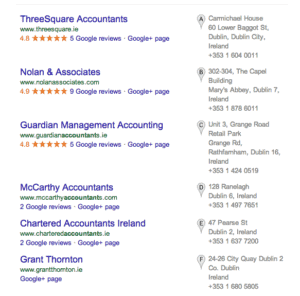Links cost.
It is that simple, there is no such thing as a free link. There are many benefits to link building, but it is going to cost you time or money. So which is best for you – time or money, as you will pay the cost of link building in one way or the other?
Why You Need Links from Other Websites
A huge part of Google’s algorithm is based on the idea of citations used at universities.
When writing essays at university I had to provide sources and links to authority work that backed up my argument. Google’s two founders took this model and used it for the web. Therefore if other websites linked to your website, your website was then seen as an authority. So more links = more authority = higher rankings and more traffic.
A Little History on Link Building
The quality of links has been on the rise for a number of years. It was easy to understand Google’s algorithm when it came to link building in the past. Lots of links from low-quality sources like general directories were enough to rank a website on the first page of the search results. Google then devalued almost all of these types of links. Interestingly these directories were financed by Google through Adsense mainly.
During the last three years, Google has taken much stronger action when it thinks a website owner is building links. Firstly all those free
Firstly all those free low-quality directory links have been causing a problem for websites now. Companies demanded ranking at the lowest cost, and why not?
Google has since penalised sites that have lots of low-quality links and/or lots of links with anchor text designed to improve rankings.
Sites that ranked highly have been taken out of Google and disappeared due to low-quality links. There are methods to have these links removed and submit a re-inclusion request to Google. Removing links from a website and going through the reconsideration request process can be costly and Google has stated that you might be better just starting a new website. The whole process can easily take twelve months and not many businesses can stand being out of the search results for that amount of time.
So Where Now for Link Building?
There are a few ultra-safe places to start acquiring links. Social media websites like Twitter, LinkedIn, Facebook and most importantly Google+.
I would like to see all pages on a website have links from these areas and multiple links from Google+
This means that all content must be very good and worthwhile; to encourage and make sharing easy share buttons must be visible on every page. I suggest sharing the same content more than once, morning, afternoon, and over several days. Sometimes an old post or page can be relevant to the current conversation – so share it.
The other area that is safe, right now, are citation directories, part of local SEO. These are all NAP directories – company name, address, telephone number.
In Ireland I have a list of about 60 of these, an example is Yelp, in the UK there are about 200, but the quality drops off quite quickly.
Citation directories are a must if you trade from a physical location as citation directories help your website rank in the Google local search results. However, they also help to make sure your website is localised in the correct country and they aid ranking in the organic search results. The boost to organic ranking is not equal to gaining the same amount of links from equal websites as most of the links are no-follow, but they are worth the time or outsource cost. They are one of the best link-building opportunities.
The above alone are generally not enough to rank highly. If you are in a market that is not competitive online the first safe way to rank higher is to make sure your on-site optimisation is correct. The second safe way to rank higher is to write longer articles. I see articles of 1,000 to 2,500 words ranking very well with no or few links. Again keep the content great. For more advice on link building, read our guide to building links to your website. You may also want to check out our guide to SEO competition research.
What is Your Risk Profile?
Are you willing to take a risk to be ranked highly in Google? I only see this strategy happening in two areas: one where the person involved doesn’t know what they are doing and second in the churn and burn category – almost all business websites are not in this category.
When building links from other websites it is important to understand two metrics: authority and anchor text. The higher the authority of the website the lower the risk and the more creative one can be with anchor text – however generally the higher the authority the less chance you have to be creative – think Irish Times, Universities, etc. The lower the authority of the website means the anchor text becomes much risker when it is not the company or domain name. Most link building I see now centres on the company name, this works but is slower than previously at achieve higher rankings and consequently more costly.
One last thought on link building: links to a website should be acquired gradually over time. It has always been a red flag to Google if a website gains too many links too quickly – unless it is featured in the news. (and remember to optimise your internal link structure and anchors). Because of this, it is a good idea to establish a long-term partnership with a reputable link building service.
As you can see from above gaining good links or any links takes time or money and they are needed to rank well in Google.

I am the founder and manager of BeFound SEO and the main consultant. I started offering SEO services back in 2007 when I had to explain SEO, as most people had no idea what it was and how much it could help their business online. I still love seeing the results from SEO.
When I’m not creating great strategy, I am usually out hiking up a mountain.
Connect with me on the links below.


